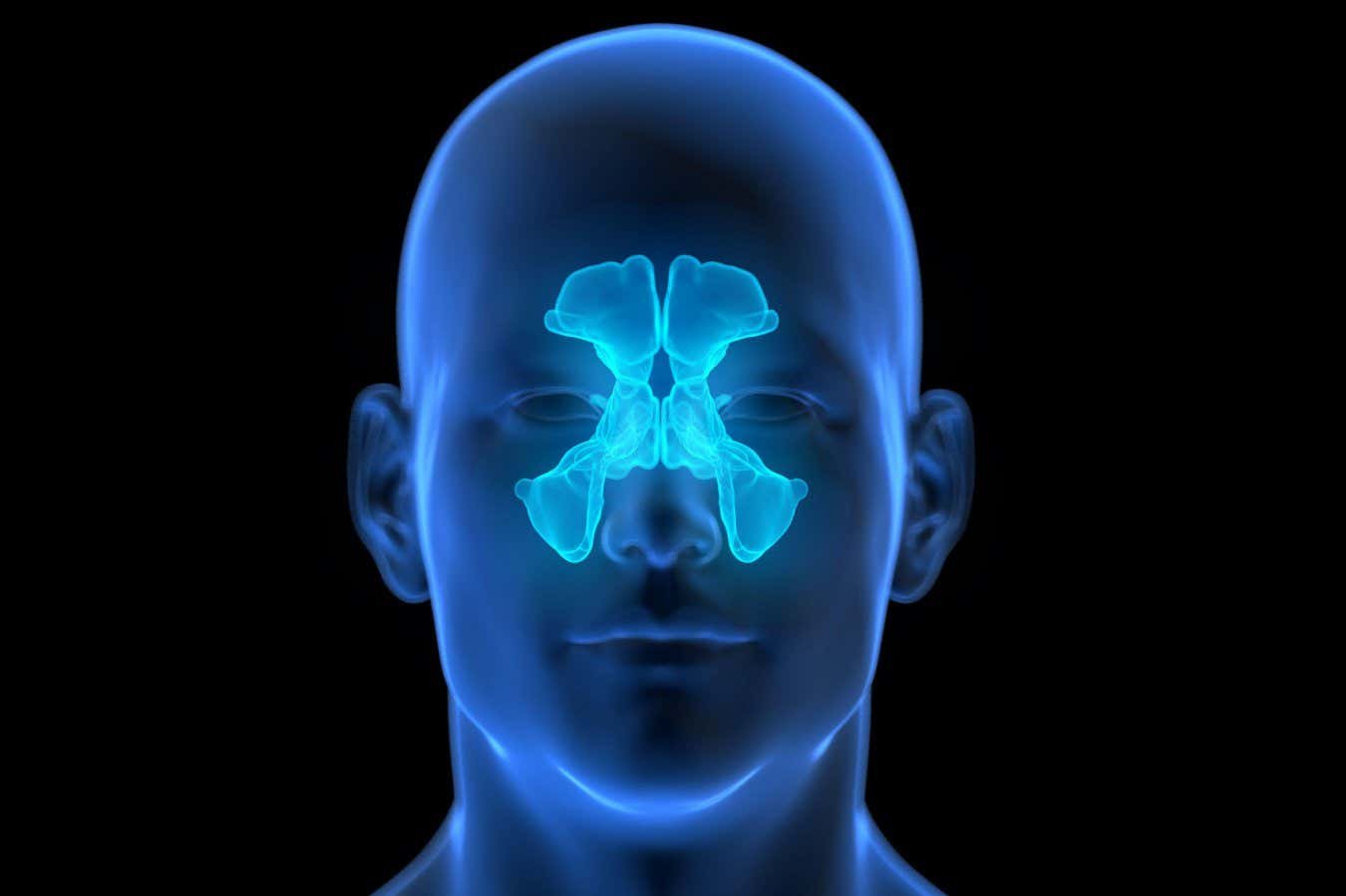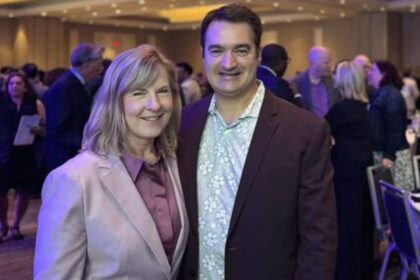The sinuses become inflamed in people with chronic sinusitis
Science Photo Library/Alamy
Surgery is typically a last resort for people with a chronically blocked or runny nose. But in some cases, it may actually work better than the antibiotics that are routinely prescribed to treat the condition.
Chronic sinusitis affects about 9 per cent of people worldwide and occurs when the mucus-producing cavities – sinuses – around the nose become inflamed. Common symptoms include a blocked or runny nose, a reduced sense of smell and facial pain, with these persisting for more than 12 weeks. The cause of the condition is usually unclear but may involve viral infections or a change to the nose microbiome.
The first line of treatment involves anti-inflammatory nasal sprays and flushing saline solution through the nose daily. But if symptoms persist, doctors often prescribe a three-month course of the antibiotic clarithromycin. This is used for its anti-inflammatory properties rather than its bacteria-killing properties, says Carl Philpott at the University of East Anglia in the UK.
As a last resort, people can undergo surgery to widen the sinuses and remove any benign nasal growths, or polyps, which form and worsen symptoms in about 5 per cent of cases. Yet no prior study has directly compared surgery with antibiotics.
To fill this gap, Philpott and his colleagues recruited more than 500 adults with chronic rhinosinusitis. In surveys, the participants rated the severity of 22 symptoms, such as facial pain and how runny their nose was, with an average score of 55 out of 110.
The team then randomly assigned the participants to take either a three-month course of clarithromycin, placebo pills or undergo nasal surgery. All the participants also used nasal sprays and rinsed their noses with saline.
Six months later, those who took either clarithromycin or placebo pills reported a roughly 10-point reduction in the severity of their symptoms compared with before the treatment, a level that would noticeably improve their quality of life, says team member Claire Hopkins at King’s College London. But since the effect was seen in both the antibiotic and placebo groups, it was probably due to the nasal sprays and rinsing, she says.
Those in the surgery group saw a roughly 30-point improvement in their symptoms compared with before surgery, suggesting doctors should offer this instead of antibiotics, says Hopkins.
There is an important caveat, however. About 80 per cent of the participants had nasal polyps, possibly because the study took place during the covid-19 pandemic, and catching the coronavirus may trigger the kind of inflammation that leads to polyps, says Hopkins. Further studies are needed to check whether the results apply to those without polyps, who we know harbour different types of inflammation, she says.
Topics:




